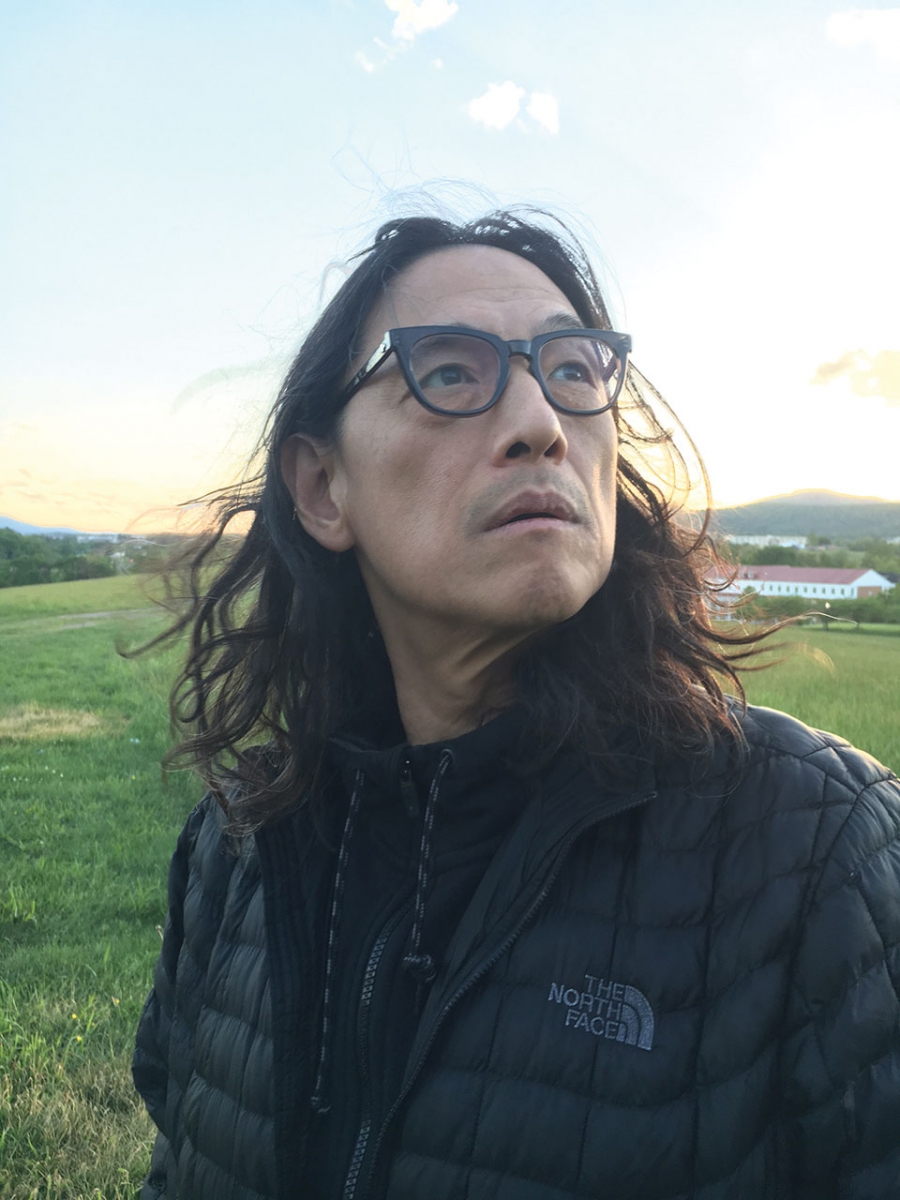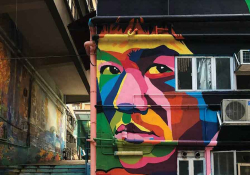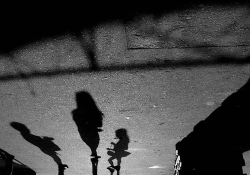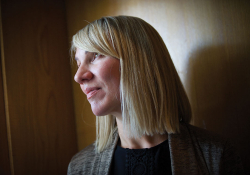Redeeming Desire: A Conversation with Li-Young Lee

Born in Indonesia in 1957 to Chinese parents, Li-Young Lee is a major poet with four collections, including The City in Which I Love You (1990), From Blossoms (2007), and a memoir. His maternal great-grandfather was Yuan Shikai, China’s first republican president. His father was a physician in China who acted as Mao Zedong’s personal secretary and suffered political imprisonments in Indonesia. His forthcoming collection, The Undressing (W. W. Norton), will be published in 2018. I recently spoke to Lee about his reflections on home, identity, difference, and the healing power of poetry as a form of testimony.
Jennifer Wong: In your poem “Changing Places in the Fire” featured in the July/August 2017 issue of Poetry, you wrote, “And of all the things we’re dying from tonight, / being alive is the strangest, / surviving our histories is the saddest.” How do you understand home and the necessity of returning to/representing home? To what extent is poetry a form of testimony?
Li-Young Lee: “Home” is a word and, like any word, subject to a paradox all words seem subject to, a paradox I find interesting for a number of reasons, including its correspondence to certain principles of yin and yang, known to the Chinese as tai ji, or the great polarity, and known in the West as the Word, or Logos, what Heraclitus called the dynamism of polar opposites. The logic of that paradox goes something like this: The fewer definitions a word has, the more defined that word is, the more definition it commands, and the clearer are the meanings attributed to that word, and the less likelihood that crisis surrounds those meanings. But also the less likelihood that subtleties and potentialities might congregate about that word.
Globally speaking, all I see is the sign of the scapegoat. There are scapegoats everywhere on this planet.
On the other hand, the more definitions a word has, the less defined that word is, the less definition that word secures, and, subsequently, the greater the number of possible meanings that accrue to that word, the greater the number of subtleties and potentialities that buzz about that word, and the greater the likelihood that crisis attends that word. Of course, I’m thinking in general, and about a word in isolation, and these conditions are mediated by context and use, by a word’s entering into relationship with other words. But it turns out, for me, the word “home” is not very well defined by a country or place or any particular structure and becomes, therefore, the site of immense subtlety, potency, and crisis. Maybe it is so for everyone, but I wouldn’t know. The fact is, my siblings and I basically grew up knowing that our parents were completely unable to protect us from harm. Whatever “home” they might have provided for us, God bless them, was completely vulnerable to spontaneous, wanton, and unjustified violence, from which we had no legal or other forms of protections. You see, Jennifer, I was born to scapegoats. My mother and father and the families they came from were violently scapegoated in China, where my parents were born. After escaping China, my parents started a family from scratch in Jakarta, Indonesia, where I was born and where my parents found themselves to be the open targets of violent scapegoating yet again, this time with their own children at risk.
After escaping Indonesia and finally arriving as refugees in the United States, a country at war at that time with an Asian country, we were scapegoated here, in less murderously violent ways, but still undeniably subjected to that particular practice of victimage, from which my parents, being themselves victims, could in no way shield us. So, what might “home” mean in such circumstances? Everything, except safety. Everything, except security. Everything, except membership that confers privileges or protection. Everything, except a place one may return to for rest or sanctuary. I think that anyone who hasn’t experienced being scapegoated would have no inkling of what I’m talking about. And yet, when I look at the world we live in today, I see that my family and I aren’t a special case but standard and the majority. Globally speaking, all I see is the sign of the scapegoat. There are scapegoats everywhere on this planet. We live under the sign of the scapegoat, everyone scapegoating everyone. What can “home” mean to anyone these days except crisis? Our earth-home itself is suffering massive crisis. Maybe the word “home” is more important than ever to contemplate. But I can’t seem to get my head around it.
Wong: How do you see your identity as a writer, especially a Chinese writer? Should ethnicity be remembered or ignored when readers appreciate your work?
Lee: It seems to me that your question is possibly, at its root, a question about reading sameness and difference. Now, I’m not sure I have anything clarifying to say about this subject, and I fear that what I do say might only mystify understanding further, but let me give it a shot. I feel that reading sameness and difference(s) is very important. That is, keeping in mind the specificity of an artist, which includes ethnicity, gender, etc., as well as other sociohistorically determined categories of identity, only enriches our reading of that artist.
I don’t believe, for instance, that reading T. S. Eliot in forgetfulness of his race or ethnicity helps me to read him better. It actually deepens my appreciation of him to put him in the context of what all the other white males of his historical moment were doing with their lives. He was writing Four Quartets. Take some guy like him in every way but one. What was that guy doing? But you see, as in my example, reading difference necessarily means simultaneously reading sameness. Take, as another example, the artist Carmen Amaya. I think understanding her work in the context of her being Roma and born in the slums of Barcelona deepens my appreciation of her, and yet none of that can completely explain her indisputable greatness as an artist. The facts of her life don’t altogether account for her sublimity, her depth, her power. There are many who share her circumstances. She’s the same as many. But they’re not Carmen Amaya. She’s different. There are many privileged sons of bankers who don’t become Paul Cézanne. And being homosexual and Spanish didn’t not influence Lorca, but neither do either of those facts account for the greatness of his work. Let me also say that I feel there are differences of greater, or even ultimate, importance that we must never lose sight of, even as we keep within our radar the more obvious differences of race, gender, class, etc.
We, all of us are, and each and every one of us is, a member of one of the most violent, destructive, desirous, disputatious, creative, innovative, loving, tender, hateful, brutish, reflective, imitative, cowardly, irrational, reasoning, unconscious, insensitive, and visionary species on the planet.
One of those differences of ultimate importance is the difference of poetry itself. Poetry is marked by its difference from other instances of language. If that difference isn’t strong enough in a poem, the other differences don’t make for interesting enough reading. Not for me, at least. Because there is a sameness that finally erases all differences except the most salient differences, it seems to me. It is a sameness that is so powerfully leveling that it makes all our talk of differences seem almost (almost, I said) like Chicago criminal gangs squabbling about the nature of their differences in regard to the different colors they fly. That sameness is this: we, all of us are, and each and every one of us is, a member of one of the most violent, destructive, desirous, disputatious, creative, innovative, loving, tender, hateful, brutish, reflective, imitative, cowardly, irrational, reasoning, unconscious, insensitive, and visionary species on the planet. And we have without exception, from the beginning of time, regardless of race or gender or sexuality, maintained our societies, nations, cultures, and human groups by murder, expulsion, exploitation, and ritual violence as well as campfire songs, stories, and recipes for dumplings. There is no human group that can claim difference from this, our collective anthropological profile. And it is in the context of this very profile that I believe poetry must be written, not just in the context of our specific profiles.
Wong: Your father was a Christian and you were brought up in Christian teachings. But in the past, you’ve also mentioned the influence of Chinese metaphysical thought. This is a two-part question. Do you feel you have to choose between Western poetics and Chinese/Asian poetics, and why? And is spirituality an important element in your work and in your expression of identity?
Lee: Yes, my father was a Christian minister for many years. His intense interest in the Judeo-Christian tradition, primarily its literature, the Old and New Testaments, seems to me now so clearly motivated and inspired by his lifelong experience of being a victim in some of human history’s more violent scapegoating episodes. It’s obvious to me now that his reading of the Bible allowed him to see and understand the scapegoating phenomenon, which he as a man and we as a family personally suffered. The Old and New Testaments so clearly and movingly depict the history of humanity’s natural inclination to resort to scapegoating in order to discharge pent-up hostilities and aggression, and how that tendency even got instituted as the cultural practice from which the very word scapegoating comes, and how that practice is, it can be argued, the ritual of rituals, the seminal ritual out from which all practice of sacrifice, ritual murder, and expulsion grew, as well as the phenomenon that most potently expresses humankind’s tendency toward sacrificial and exclusionary thinking, a kind of thinking practiced to this day, a kind of thinking that answers human violence with violence, that uses violence as a way to curb violence, uses war to end wars, and so on. Perhaps it’s an objectification of sublimation, I’m not sure.
The genius of the Bible is its critique of this development in several different kinds of interpersonal manifestations, beginning with the rivalry of Cain and Abel, moving through the human near-sacrifice of Isaac, the expulsion of Joseph, the formal instituting of the practice of the scapegoat expulsion, war, and straight through and into the scapegoating of Jesus. In this way, the Bible is true, profoundly so. Reading it literally as history seems ridiculous to me, but to read it as my father read it, as a revelation of our human evolution, our struggle with our own violent nature, our own violent countenance, and the perils of our ignorance of that, seems indispensable to me. Especially given the state of the world today. Of course, my father also had a lifelong and deep interest in many Daoist sacred texts as well, including the Dao De Jing and the I Jing. In fact, and this might address your other question regarding East and West and having to choose one over the other, I was noticing something interesting about the I Jing in relation to Ovid’s Metamorphoses.
First of all, though, regarding your question of having to choose East or West, I don’t understand why we have to choose. In fact, I believe we don’t have to choose. We do, however—we must, I believe, if we want to live—synthesize the best of both worlds, since both worlds have so much living and necessary knowledge to offer. I don’t know from what mistaken sense of loyalty or misguided sense of affiliation anyone comes to the feeling of having to choose. Maybe that need itself, that feeling of having to choose, is a residue of sacrificial/scapegoating thinking, a flavor of thinking that implies or suggests that something must always be expelled, something must always be sacrificed.
Wong: In your poetry, such as “I Loved You Before I Was Born” and the title poem of your chapbook, The Word from His Song, there is a strong emphasis on the healing or bridging power and synthesis of poetry: “all things fired / in the kiln of the sun or of the mind.”
Lee: I think, in order for us to be more fully human, and in order for us to answer to today’s challenges, the best of East and West are going to have to be fully synthesized. I don’t perceive any natural conflict between East and West. I don’t believe, as Heraclitus believed, that some sort of natural conflict and strife must exist between any two potent terms, and that only out of such strife does creation come about. He should have studied tai ji, poor guy. His sense of the Logos is one of war and strife. In tai ji, the only true creation comes out of harmonious conciliation and reconciliation between equal and opposite powers, which were never dual to begin with.
Which brings me back to the I Jing and Ovid’s Metamorphoses, two books in humankind’s early history, separated only by around five hundred years, the Chinese book predating the Roman poem. Both books were originally entitled The Book of Transformations or The Book of Changes. Both books are attempts to understand humankind’s primordial beginnings. But the Latin book is full of murder, rape, and suicide, depicting and enacting the very logic of sacrificial thought, while the Chinese book is full of wisdom, compassion, hope, and comfort, giving advice about how to escape the traps of violence and scapegoating. One book, Ovid’s, while a joy to read and not without substantial rewards, ultimately mystifies the reader by projecting human lineaments onto the divine, thereby obscuring the very divine, primordial processes it seeks to uncover. Meanwhile, the Chinese book, also an absolute delight to study, serves to demystify the reader’s confusion about humanity’s place in the universe by stripping away all human projections from the face of primordial reality and revealing transhuman, nonspecies-specific forces at work. Furthermore, it offers ways in which human beings can cooperate and harmonize with these forces in order to evolve toward deeper and more comprehensive modes of being. We see more and more clearly how a narrowly species-specific ethos is ecologically unsound and dangerous. So, one is a book describing and enacting the logic of violence. The other is a book describing and enacting the logic of peace.
I’m not suggesting the East is any better than the West. Obviously, the East is as violent and materialistic as the West, and vice versa. I’m just remarking on these two specific instances in our collective human literary history, reading their samenesses and differences.
Books like the I Jing and the Old and New Testaments convince me that the greatest human mission, encoded in the very fabric of human being, is inextricably entangled with the meaning and power of poetry.
Wong: Also, the search for meaning in your poetry, the questioning of the world as the place to be . . . I wonder if you have thought of a more utopian place to be?
Lee: I have two reactions. First of all, I think enlightened government must be possible, yes? I think a society founded on paradigms rooted in just representation of its members is possible, yes? A society well informed of its own parts is possible, yes? But I also know that none of that is possible unless it happens on an individual scale, and I don’t know when that will happen. Enlightened self-government, just representations of reality to the individual perceiver, a human psyche well informed of its own parts: these would have to happen first, I suppose. Second, books like the I Jing and the Old and New Testaments convince me that the greatest human mission, encoded in the very fabric of human being, is inextricably entangled with the meaning and power of poetry. Since the deepest poetry discloses the body of principles that underlies all manifestation—a process of demystification, revelation, and the uncovering of humanity’s primordial condition, its unbroken connection to the divine, the living unknown—it uncovers our mission and destiny. Of course, there is that literary work which commits the original sin of projection, projecting human pathology onto the face of the divine, onto the surface of the unknown. But at best, poetry lineates meaning, however obscure or mysterious, and meaning enhances our conscious evolution away from violence and death and toward peace and life.
This difference between literary works, some toward the logic of violence and the science of death, and others toward the logic of peace and the science of life, is another crucial difference for me, more important to me than some of the other differences we’ve named. This difference, and knowing this difference, and knowing how to read for this difference, is more important to me than all of the other differences: East and West, spiritual and material, mainstream and nonmainstream, Chinese and not Chinese, etc. These other differences are only important to me to the extent that they help me understand what I consider the supreme and crucial difference: words that lead to peace and more life, or words that lead to more violence and death.
My allegiance to a logic of peace and a science of life is more important to me than any other allegiance, including home, country, family, race, class, gender, sexual preference, poetic school, you name it. What could any of those words mean if we all kill each other off or destroy the planet beyond repair?
Wong: That preoccupation with words pervades your latest poetry collection, The Undressing. Many of the themes you’ve touched upon here haunt your new poems: the sign of the scapegoat, the violence of being uprooted from home, the descent from the Word (Logos) into debased forms of the word, the casualties of the twentieth century. In the long poem “Changing Places in the Fire,” you write: “Therefore, I seek asylum / in the final word, / an exile from the first word, / and a refugee / of an illegible past.” Beyond the illegible and the unspeakable in your past, however, that state of being which “tends toward fire” also holds out a promise of redemption, especially in the long poems “The Undressing,” “Our Secret Share,” and again in “Changing Places . . . ,” in which “the lover and the beloved” are “constantly changing places in the fire.” In the language of these new poems, where does violence end and redemption begin?
Lee: The honest answer is I don’t know. But the question is too important to not try to form at least an orientation toward a meaningful response. I believe desire may be at the heart of the issue of violence and redemption. Lao Tzu, Chuang Tzu, and the Buddha all seemed to know this. We know what the Buddha said about desire and suffering. And a lot of the Daoist alchemical literature talks about the world-destroying, corruptive characteristics of unrefined, unsublimated desire, which they termed minor yin and yang, in opposition to the world-creating, nurturing, fecundating power of refined, sublimated desire, which they termed major yin and yang. The initial hexagram of the I Jing is a very powerful description of sublimated desire. It may be that desire that isn’t alchemized, that isn’t sublimated, leads to an attitude of fear, paradigms of scarcity, and a worldview characterized by life for some and death for others, violence. On the other hand, sublimated desire, alchemized desire, leads to an attitude of love, paradigms of abundance, justice, creativity, and life for all living things.
The Gospels of the New Testament see into this quite deeply, I think, critiquing as they do a very specific and particularly virulent form of desire: desire that imitates the desires of others, desire that multiplies through imitation. Being highly imitative creatures (we absorb language, family culture, social culture, national culture all by conscious and unconscious imitation), we are dangerously susceptible to this particular form of desire, desire inspired purely by another’s desire. I’d call it inauthentic desire. It’s genuine desire that’s been hijacked and redirected toward a substituted object. Advertisers understand this better than we do. Every time they use a celebrity or someone more beautiful than us or richer than us to endorse a product, they’re tapping into our tendency to want what someone else wants.
Advertisers use this tendency in us to want what others want as a very powerful tool to get us to buy things we don’t really want or need, using money we don’t have, and thereby squandering our natural desire—energy which, if alchemized, could fuel more creativity and less consumption. For desire is at the heart of art-making, poetry-making, the creation of forms and objects. So we can’t do without desire, eros. It’s the raw stuff that gets turned into mathematical equations, musical compositions, sculpture, paintings, poems, plays, stories. As creativity, desire is redeemed. As consumption, desire is debased. Desire itself needs to be redeemed.
September 2017














